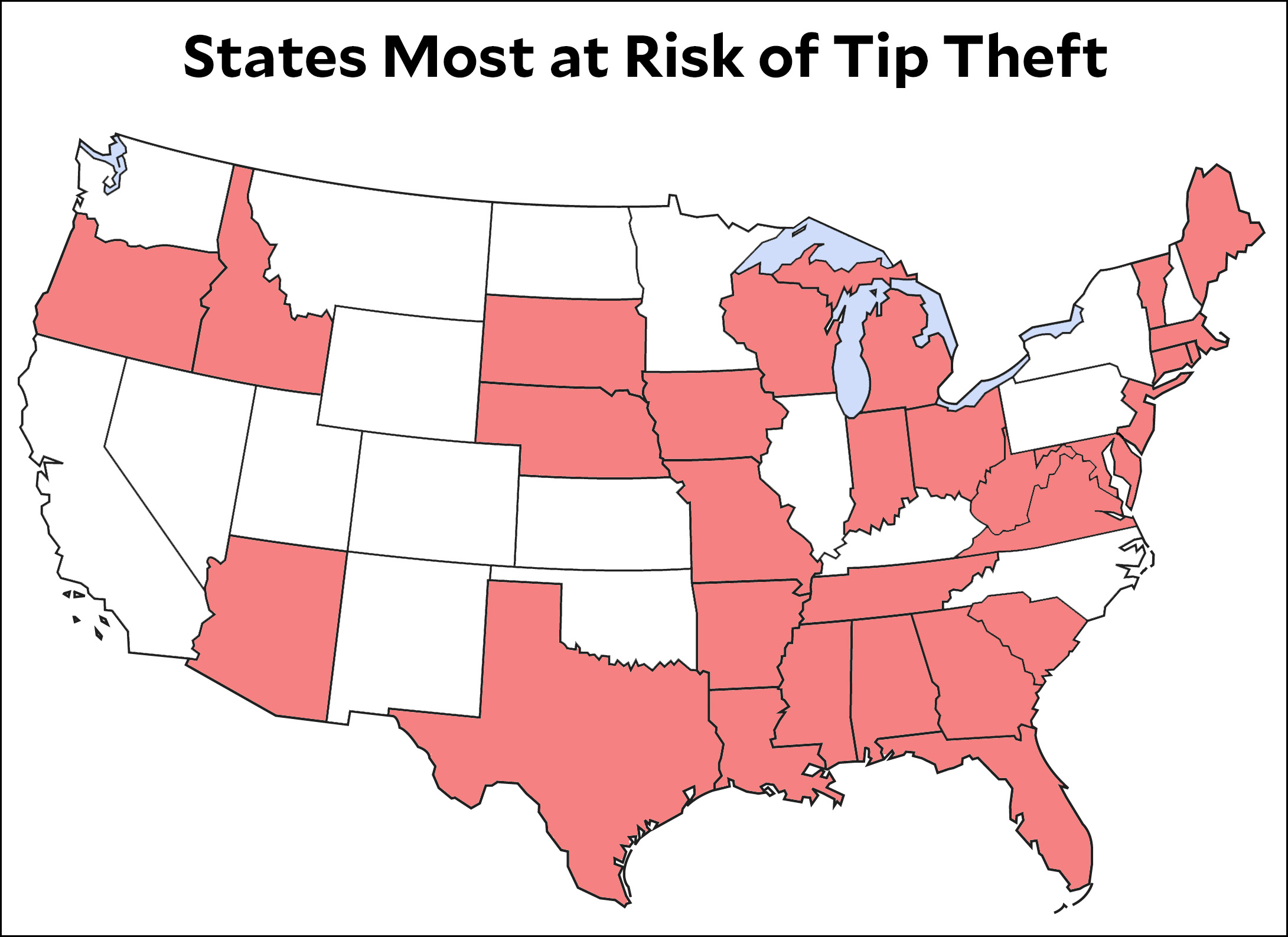The Trump administration has proposed a new rule that allows restaurant owners to collect all tips and then distribute them among both tipped and nontipped employees:
The proposal would help decrease wage disparities between tipped and non-tipped workers…such as restaurant cooks and dish washers. These “back of the house” employees contribute to the overall customer experience, but may receive less compensation than their traditionally tipped co-workers.
Isn’t that sweet? Trump is looking out for cooks and dishwashers, the hardworking, unsung heroes who keep our nation’s restaurants going. But perhaps you think maybe there’s more going on here? I don’t know what’s made you so cynical about our president, but just this one time you’re right. The Economic Policy Institute has done some calculations, and Eli Day reports on the fine print:
Here’s the rub: The rule doesn’t actually require that employers share those tips with untipped staff. Under the proposal, employers can pocket those tips as long as workers earn the minimum wage….According to EPI’s estimates, employers across the country are likely to pocket $5.8 billion worth of employees’ wages if the rule goes through, in addition to an estimated $50 billion in wage theft already occurring nationwide.
Here’s the funny thing: the Department of Labor is required by law to produce an estimate of the amount of tips that will be transferred from workers to employers under the proposed rule. But they didn’t. Is that because it’s impossible? Not at all: EPI includes a mind-numbingly complete appendix that explains their methodology—methodology that could easily be used by DOL’s wonks to create their own assessment. The problem, of course, is that DOL doesn’t want to produce an official document that suggests their rule will lead to billions of dollars in lower wages for working-class restaurant servers. So they didn’t. That’s the Trump way, after all. He’s a hero of the working class, haven’t you heard?
Anyway, this rule will affect different states differently, since some states have their own rules that protect tipped workers. Servers in blue states like California, Illinois, and New York have little to worry about. But the folks in red states who voted for Trump are about to get screwed big time. On average, servers in these states will lose nearly half of their tip income under the new rule—and that’s after accounting for their increased minimum wage. Here’s a map. Read it and weep.


















